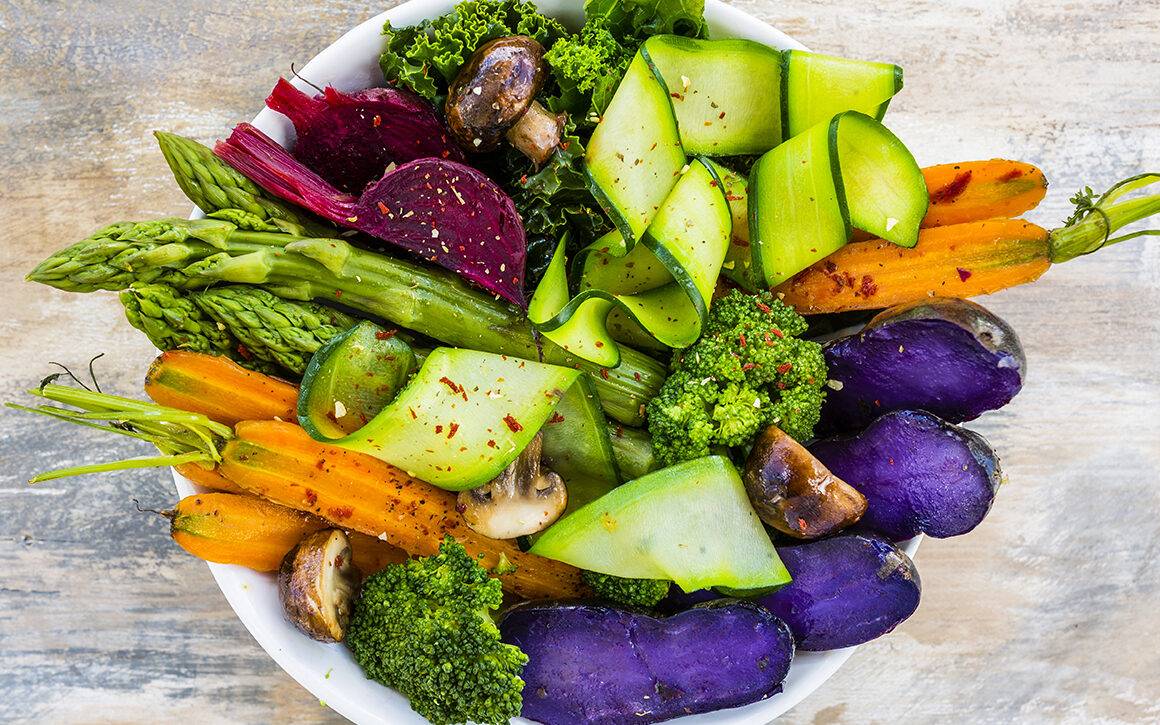Best Brain & Immune-Building Vegetables For Kids

As a parent, it is your responsibility to ensure that your child gets a healthy and well-balanced diet. After all, feeding your kid the right nutrients will help in their overall growth and development and strengthen their immune system.
However, almost every parent can admit that this is no easy task. Feeding kids healthy food, especially vegetables, is mostly a struggle and a challenge. Even experts will tell you that kids need to develop a taste for it, which requires parents to find new and creative ways to make vegetables presentable and tasty.
In this article, we highlight the major benefits of vegetables for kids, give you a list of the best vegetables you can give your child, and some tried and tested ways to get your kids to willingly eat vegetables.
Benefits Of Vegetables
As your kid is growing and learning, they require the right kind of nutrients to aid in their overall development. In this regard, vegetables offer numerous benefits and should be included as part of their routine diet.
Vegetables are a great source of vitamins and minerals, which help prevent your child from developing any deficiencies. They also contain loads of antioxidants, which are essential to combat and prevent diseases and improve your child’s immune system. Vegetables also have a high fiber content, which makes them ideal to help in your child’s digestion.
Moreover, vegetables are important for brain development, maintaining heart health, improving vision, lowering blood pressure, and improving organ function. Plus, since vegetables have a low-calorie content, they can help your child gets the required nutrients without the risks of gaining weight or growing obese.
Best Vegetables For Kids
Cucumbers
Cucumbers have a high water content and contain vitamins A, B, C, and E, which makes them a great vegetable to ensure hydration, boost skin health, and improve the immune system. They are best served raw or with a fun dip sauce such as yogurt or hummus.
Carrots
Carrots are the holy grail of healthy root vegetables as they contain a high fiber content, vitamins A, K1, and B6, and powerful compounds that have great antioxidant activities. The best part is that you can feed them raw, roast them, saute them in olive oil and herbs, or mix them in a smoothie for a delicious meal.
Avocados
Avocados are known for promoting good vision, heart health, preventing cancer, improving digestion, and a higher brain function. They are best served to your kids with some potato fries and guacamole or even when making chocolate desserts such as pudding.
Sweet Corn
Sweet corn is comparatively more appealing to kids, especially when served with a little bit of melted butter. They have amazing nutritious benefits that include vitamin C and B vitamins, and also contain lutein, which helps improve eyesight.
Squash
Whether it is zucchini or yellow squash, this is a fantastic vegetable to include in a variety of food such as cake, pasta, and fries. Squash is great for promoting strength and fitness, maintaining heart health, and enhancing skin health.
Leafy Greens
Green leafy vegetables, such as spinach, kale, and broccoli are excellent sources of enhancing brain function as they contain nutrients such as vitamin K, folate, and beta carotene. They are best added to smoothies, stir-fried, or mixed with pasta so that kids can have them easily.
How To Get Your Kid To Eat Vegetables?
In order to get your child to eat healthy vegetables, you should introduce new vegetables one at a time, and make them a plate that is colorful and presentable. This can be a great starting point to make vegetables a part of their daily diet.
Remember to make vegetables tasty by either sauteing them in butter, serving them with a dipping sauce, making vegetable soup or simply seasoning with herbs. You may also make a smoothie by mixing some veggies with fruits and yogurt to mask any bitterness in taste.
Ideally, it is best to involve your child in the cooking process and allow them to choose which veggies they want to eat. This can help encourage them to develop a taste for having vegetables.
Conclusion
Now that you know the amazing and varied benefits of vegetables for your kids, and are aware of the best kind of veggies to feed them, all you need to do is encourage your child to have them on a regular basis.
To help your child develop good eating habits, introduce them to a wide variety of vegetables and give them the chance to choose the one they like best. This will make it easier for you to incorporate those veggies in your everyday cooking, and ensure that your child has a healthy and nutritious diet.
Share via:





Leave a Comment